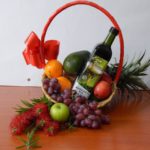
Kenya has a great agricultural output tradition that has found a market both locally and abroad. The main exports include vegetables, fruits and select inedible horticultural produce like flowers. The production of processed fresh products, including avocado oil, pasteurized milk, honey, passion fruit and other essential vegetable oils began peaking up as recently as 2016. This is because importers from as diverse places as the Middle East and Europe have supplemented the growth of a middle class with Western tastes in Kenya. The latter have brought about a local reseller market for vegetable oil and fruit juice.
In this overview, we will examine one key player, the prospects, and major processed products and their acceptance in the market.
Key Players
Mt. Kenya Avocados joins the ranks of leading industry players in the production of avocado oil. Mt. Kenya Avocados focuses on the cold extraction process, which ideally leaves the main ingredients in the fruits untouched. This is what qualifies hass or fuerte extracts as extra virgin avocado oil.
The company, in 2016, had improved its production capacity to 30 percent. Its production methods conform to industry standards as the processing is merely mechanical, with no additives: it involves the crushing of the produce, followed by the kneading stage. Finally, the extract passes through a centrifugal plant that separates water content from oil content.
Prospects
By the close of the year 2012, a growing demand, locally, for fresh juice saw a rise in production levels of 5.8%. The country produced 109,707MT of the juice in the first three months of 2013. Consumers’ varying tastes, the weather pattern and market forces influence the reseller market prospects of juice in Kenya.
For instance, a retailer on the outskirts of Nairobi, in Ruiru, says that hot weather means double the sales of cold weather equivalent sales.
To supplement the weather interference, many exporters are looking up to foreign destinations, especially where summer and healthy choices drive consumer demand.
Europeans provide the best market for essential oils because of aromatherapy uses. Some of the leading processed products are aromatherapy cosmetics, which have created leeways for producers in Kenya and other developing countries.
What does the European market specify for its essential oil/cosmetics?
•The oil must have a complex composition, with at least a hundred natural chemical combinations. For instance, olive oil from Kenya has fatty acids, thousands of fat types, like triglycerides, color pigmentation and the like.
•The acceptable pigmentation for any essential oil entering Europe ought to be a dusty yellow to brown color.
•Essential oils are water insoluble. This means that they do not dissolve in fluids.
•The main key of a product being an aromatherapy oil is its purity and specific ingredients. Blending with other ingredients does not qualify.
Market Acceptance
For fresh produce processing to find acceptance in the European market, local buyers and international consumers look for these features:
•Natural composition, which means the products are 100 percent with no colorants or chemicals.
•Standard specification: for instance, mango specifications (KS 404:1984) require physical means of extraction and preservation. If the juice goes under artificial storage, it may lose its slightly acidic flavor.
•The safety level of the fresh produce indicates that certain ingredients are above the specified levels. For example, the EU market of essential oils specifies that allergy-causing components of fruit juice, like citral, should be below a certain limit. This limit varies from one buyer to another.
Processing Tips in Kenya
If you are ready to begin importing fresh essential oils, fruit juice or animal products like honey, you will find them having met the following guidelines:
•The period between the harvest is as short as possible. For instance, orange juice processing in Kenya takes place ideally the same week as the harvest. This ensures the retention of the ripening aroma and freshness when it reaches its destination.
•Extraction is usually physical or mechanical. In some cases, temperature gradients may vary depending on a fresh order by a client with his or her specifications.
•There is usually low or no use of diluting ingredients. This means that the produce is 100 percent pure, a reason for the high reputation of the given exporter.
In conclusion, Kenya has a big potential for processed fresh products, owing to its vantage point as a leading agricultural country in East Africa. From avocado oil to olive and mango oil, animal end-products like honey and cold-maintained beef, natural cosmetics, besides vegetable products like ready-to-fry chips, the country has the potential to be the import destination of your choice. Besides, the growth of a middle class with Western tastes, locally, ensures a lot of demand. All these points gang up to highlight the current high production levels of processed farm products.

